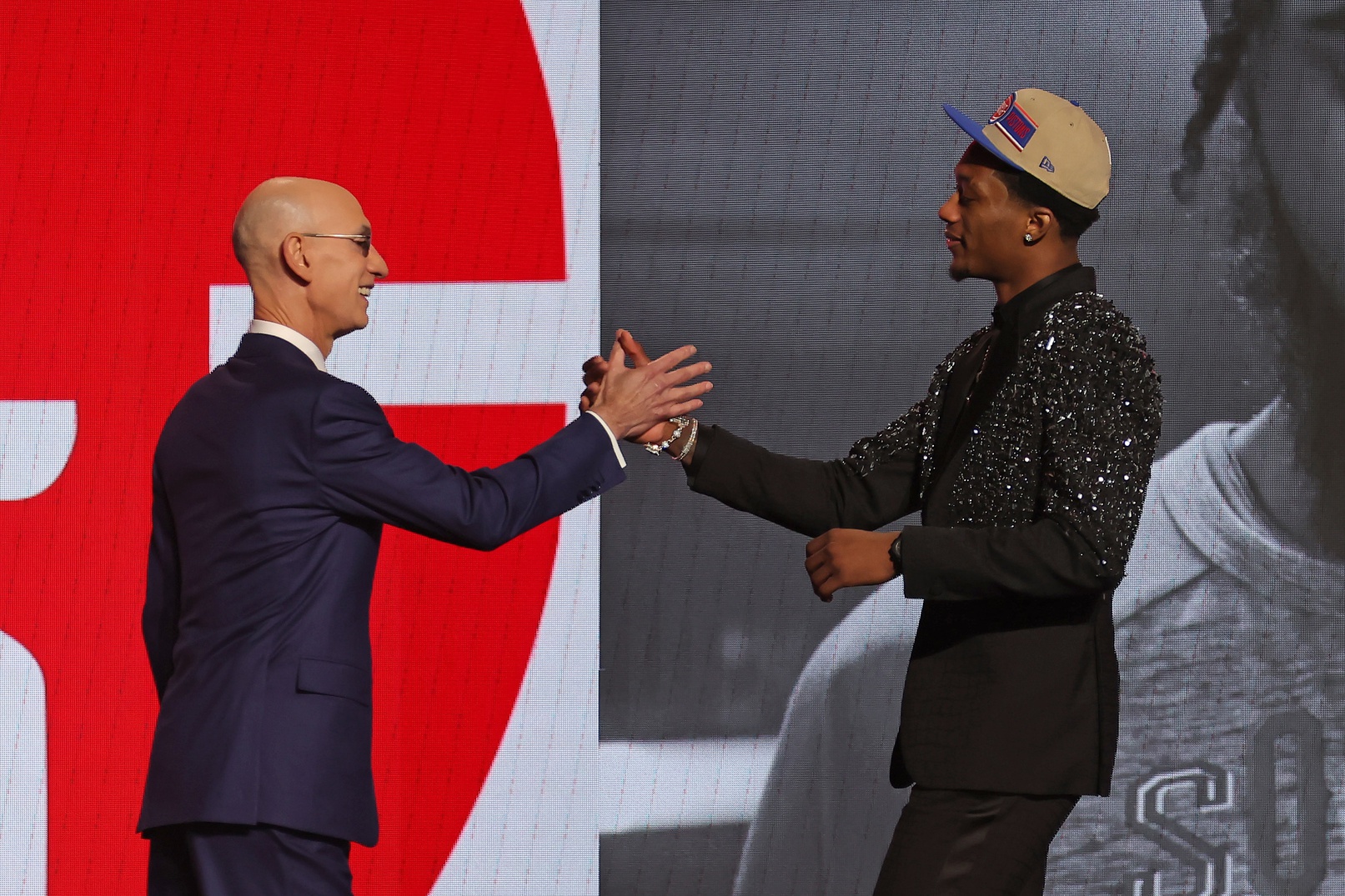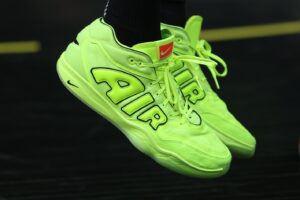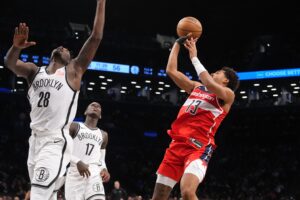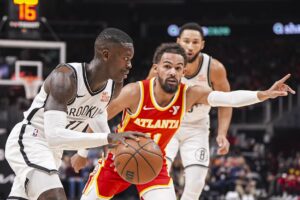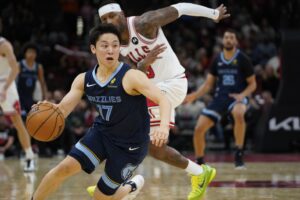When the NBA decided that the G League Ignite program wasn’t worth continuing, Portland Trail Blazers guard Scoot Henderson spoke out against the program being shut down. Now, Detroit Pistons forward Ron Holland has something to say.
Pistons’ Ron Holland Questions G League Ignite Decision
“I feel like there was no need for it. I feel like it was a really good program,” Holland tells RG.org’s Spencer Davies. “The money, NIL stuff is cool, but there’s kids coming from high school that are really not paying attention to the money ’cause it’s not long-term money sometimes.”
“Just being able to go out there and get NBA knowledge, NBA information and learning how to become a professional on and off the court, that was the program for that,” Holland muses. “So I think that program definitely should be something that they consider (bringing back) just because kids grow up different in there. A lot of kids’ priorities sometimes is different, and Ignite was definitely a good way to grow.”
An Underrated Program
Like Henderson, Holland is a product of the Ignite and one of its success stories. While Ignite prospects like Michael Foster Jr. and Dominick Barlow went undrafted, he and Henderson were lottery picks. Houston Rockets guard Jalen Green, Golden State Warriors forward Jonathan Kuminga, Atlanta Hawks guard Dyson Daniels, and Chicago Bulls forward Matas Buzelis were also drafted in the lottery.
In fact, Green (second overall), Henderson (third overall) and Holland (fifth overall) were top-five picks.
So, while some of opined that the Ignite was ineffective, it couldn’t be further from the truth. There may have been dysfunction stemming from older players wanting to use the Ignite as a stepping stone more than as an opportunity to mentor young prospects. However, for the most part, the program accomplished what it intended.
“The Ignite program helped me in ways that people wouldn’t even imagine,” Holland says.
“They mainly helped me prepare body and mentally-wise. Things can go wrong, but it’s a long game,” he explains. “It’s a game of runs and being able to just stay poised, stay calm and collected throughout. We’re not supposed to get too high or too low. Just stay at one level and just keep doing what got you there. Whatever you were doing the first quarter, if it’s working, keep doing it up until the end of the game.”
It’s Not All About The Benjamins
The NBA’s ruling on the Ignite came down to their evaluation of how NIL deals would affect the program.
To NBA commissioner Adam Silver and G League president Sharif Abdur-Rahim, there wasn’t a need to continue the G League Ignite if kids could get paid in college. The problem with that thinking though is that, in college, a paid player is still a student-athlete. Yet, many athletes would rather focus on sports than school.
Furthermore, not every college program will teach their athletes how to navigate the NBA . There’s more that goes into being a professional than getting a game check. Just ask — will a prospect like 2025 No. 1 recruit AJ Dybantsa be more mentally prepared for the NBA because BYU (or wherever he commits) paid him $5 million in NIL money? Or would playing alongside and being coached by players who have tasted the NBA help more?
These are questions and perspectives that really should be addressed.


